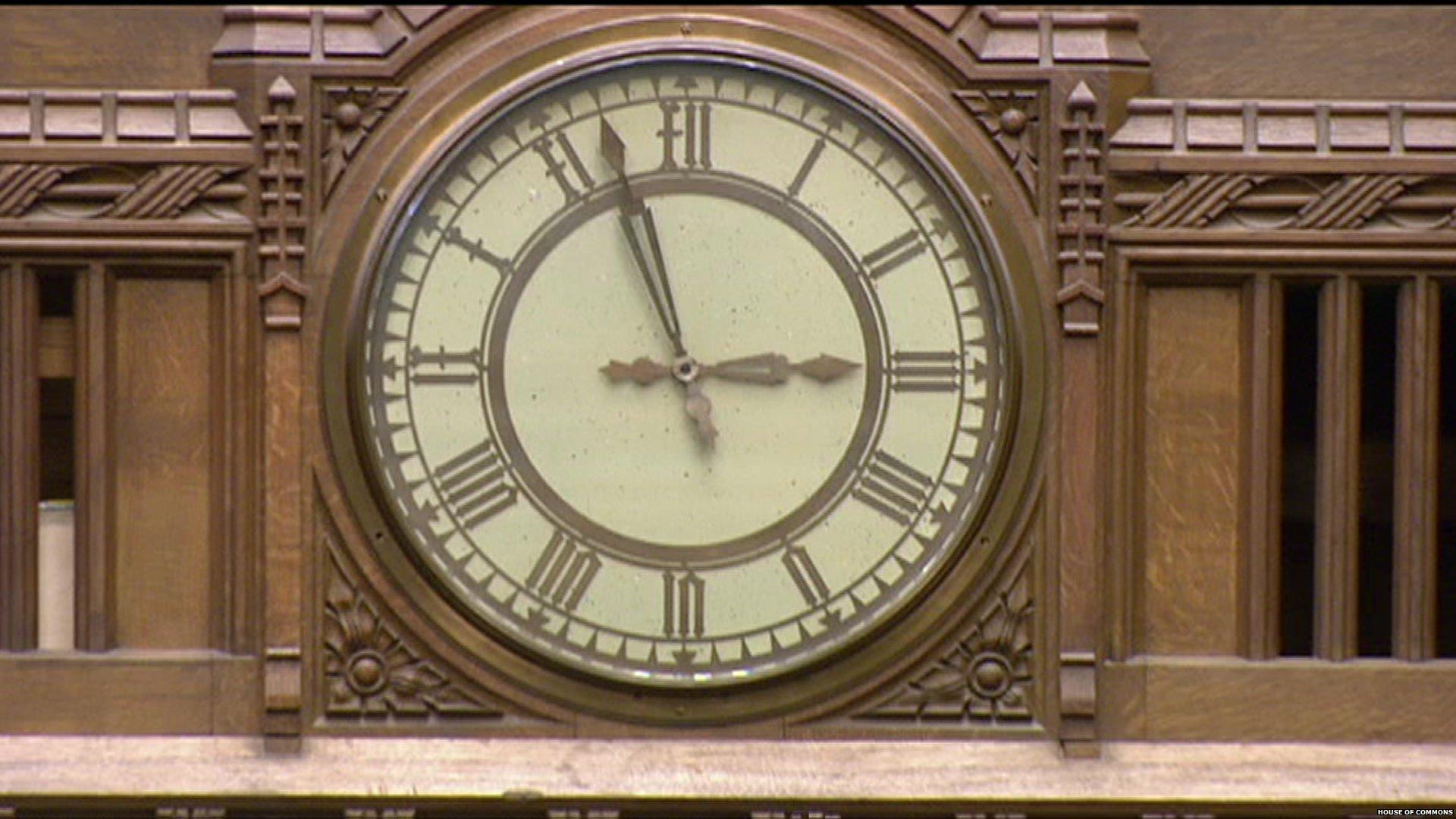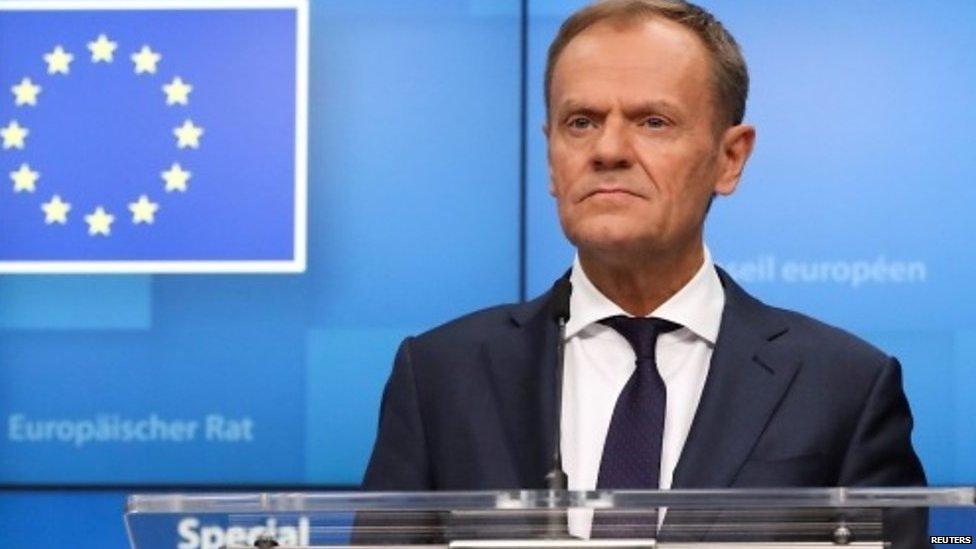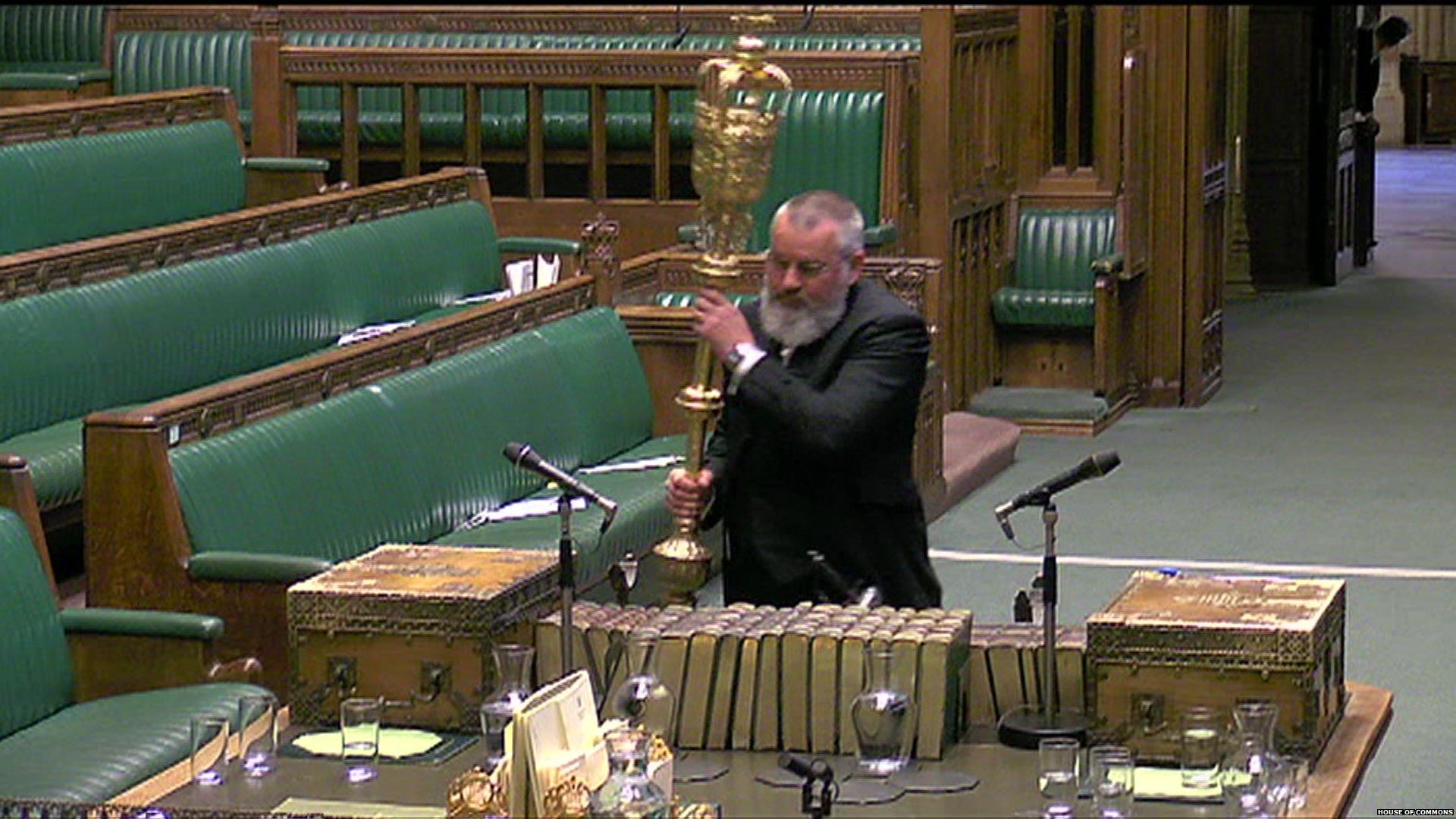MPs finishing early amid Brexit deadlock
- Published

The Commons chamber rose at just before 3pm on Thursday 2 May
The Commons chamber has been regularly rising early for the day over the last few weeks - amid the Brexit deadlock and a lack of parliamentary business.
The early finishes come despite a plea from the EU in April that the UK should not "waste" the Brexit extension, which runs until the end of October.
According to research by the Press Association, more than 23 hours of sitting time has been left unused.
The Commons rose early 14 times on the 18 sitting days before the May recess.
On one occasion, the Commons sat for just three and a half hours - rising four hours and 26 minutes ahead of schedule.
After the EU agreed that the UK could remain in the EU until 31 October to find a "solution", the EU Council President Donald Tusk had a message for "our British friends".
"Please do not waste this time," he said.
The recent lack of parliamentary business stands in stark contrast to a series of debates and votes since Mrs May agreed a deal with the EU last November.
She made frequent statements on Brexit in the Commons, taking questions from MPs for several hours.
In the first quarter of this year, there were three dramatic votes rejecting her Withdrawal Agreement.
The government subsequently paused efforts to get the Brexit deal through the Commons while Mrs May and Labour leader Jeremy Corbyn held negotiations to find common ground.
But with the PM stepping down next month and a Conservative leadership contest under way, the withdrawal agreement is unlikely to make a further appearance in the Commons.
And with Brexit off the legislative agenda, ministers are running out of bills.

The EU Council President Donald Tusk urged the UK not to "waste" time
In normal circumstances, this session of Parliament would be finishing, paving the way for the government to prepare a list of new bills to be unveiled in the Queen's Speech.
This parliamentary session, which started in June 2017, is the longest since the English Civil War in the 17th Century.
The SNP's Commons leader Pete Wishart said: "We have been told by the EU not to waste the time granted to find a Brexit solution, but yet the House is doing everything possible to do just that.
"The House now regularly rises early because of lack of business. Calling this a zombie Parliament would be to actually disrespect the brain-eating living dead.
"We are now in business purgatory and this can not go on. We have to get down to work."
Labour Party chairman Ian Lavery said: "While they [the government] are ripping themselves apart, our country is in crisis.
"The government has botched the Brexit negotiations, our steel industry is under threat and Universal Credit is pushing people into poverty."

The mace is removed from the Commons, signalling the end of the day's business.
Passing legislation, however, is only one strand of parliamentary business.
Brexit is a regular fixture at departmental question times while the Brexit committee is holding three separate inquiries on the issue.
And it's not all about Brexit. There have been statements from ministers on a range of other topics, from restoring devolved government in Northern Ireland to regulating social media companies.
Meanwhile, Commons committees have been holding hearings on other key issues such as violent crime, special educational needs and the treatment of veterans.
The Commons is now on an 11-day recess, returning on 4 June.